Pope Francis urges better pay for Singapore’s migrant workers
Pope Francis praised Singapore’s economic development as he travels from Asia’s poorest to richest countries
Your support helps us to tell the story
From reproductive rights to climate change to Big Tech, The Independent is on the ground when the story is developing. Whether it's investigating the financials of Elon Musk's pro-Trump PAC or producing our latest documentary, 'The A Word', which shines a light on the American women fighting for reproductive rights, we know how important it is to parse out the facts from the messaging.
At such a critical moment in US history, we need reporters on the ground. Your donation allows us to keep sending journalists to speak to both sides of the story.
The Independent is trusted by Americans across the entire political spectrum. And unlike many other quality news outlets, we choose not to lock Americans out of our reporting and analysis with paywalls. We believe quality journalism should be available to everyone, paid for by those who can afford it.
Your support makes all the difference.Pope Francis called on Singapore’s government to pay fair wages to over a million foreign workers as he arrived in the global financial hub on the final leg of his 12-day Asia-Pacific tour.
The pope arrived on Wednesday afternoon, travelling from one of the world’s poorest countries, East Timor, to one of the richest.
On Thursday, he was driven to the National Stadium where more than 50,000 people were waiting to attend a papal mass, the climax of the pontiff’s historic tour before he returns to Rome on Friday.
The pope received a grand welcome at the stadium, where people had started arriving hours earlier.
Some people took selfies with him while many were overcome with emotion during the rare encounter with the Vatican leader.
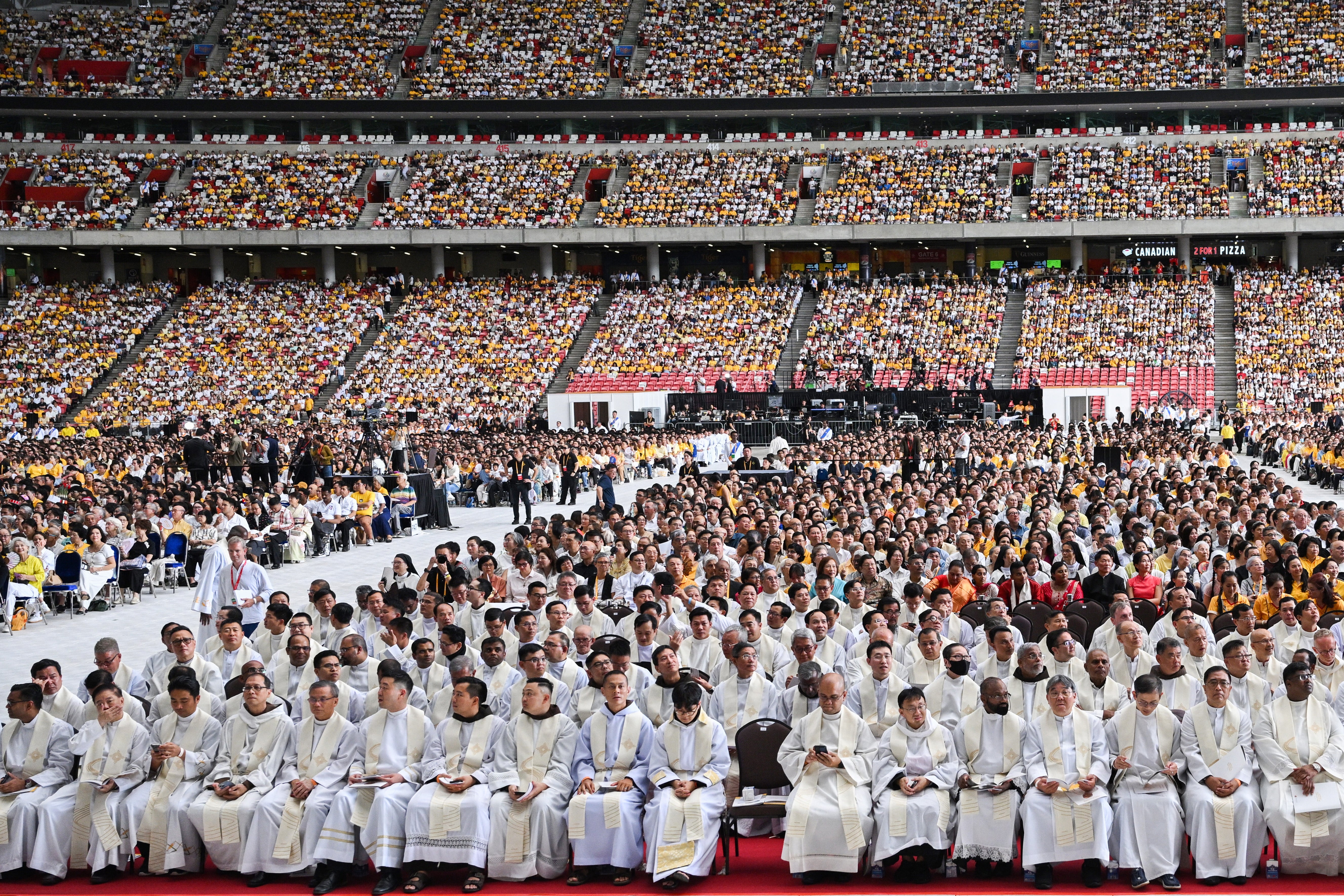
Singapore celebrated the pope’s arrival by unveiling a new hybrid orchid named for him, the "Dendrobium His Holiness Pope Francis”. Presented during an official welcome ceremony, the orchid “exudes a serene and pure beauty” of ivory white petals with a pink tinge at the centre, according to the National Parks Board.
Francis began his official programme on Thursday by meeting president Tharman Shanmugaratnam and prime minister Lawrence Wong before addressing state officials and the diplomatic corps at the National University of Singapore.
He marveled at Singapore's modern skyscrapers “that seem to rise from the sea” and the commitment of its government to providing public housing and quality education and healthcare to its people.
But he urged public officials to beware of rewarding excellence at all costs, a reference to Singapore’s highly competitive work and educational culture.
“I would like to highlight the risk entailed in focusing solely on pragmatism or placing merit above all things, namely the unintended consequence of justifying the exclusion of those on the margins from benefiting from progress,” he said.
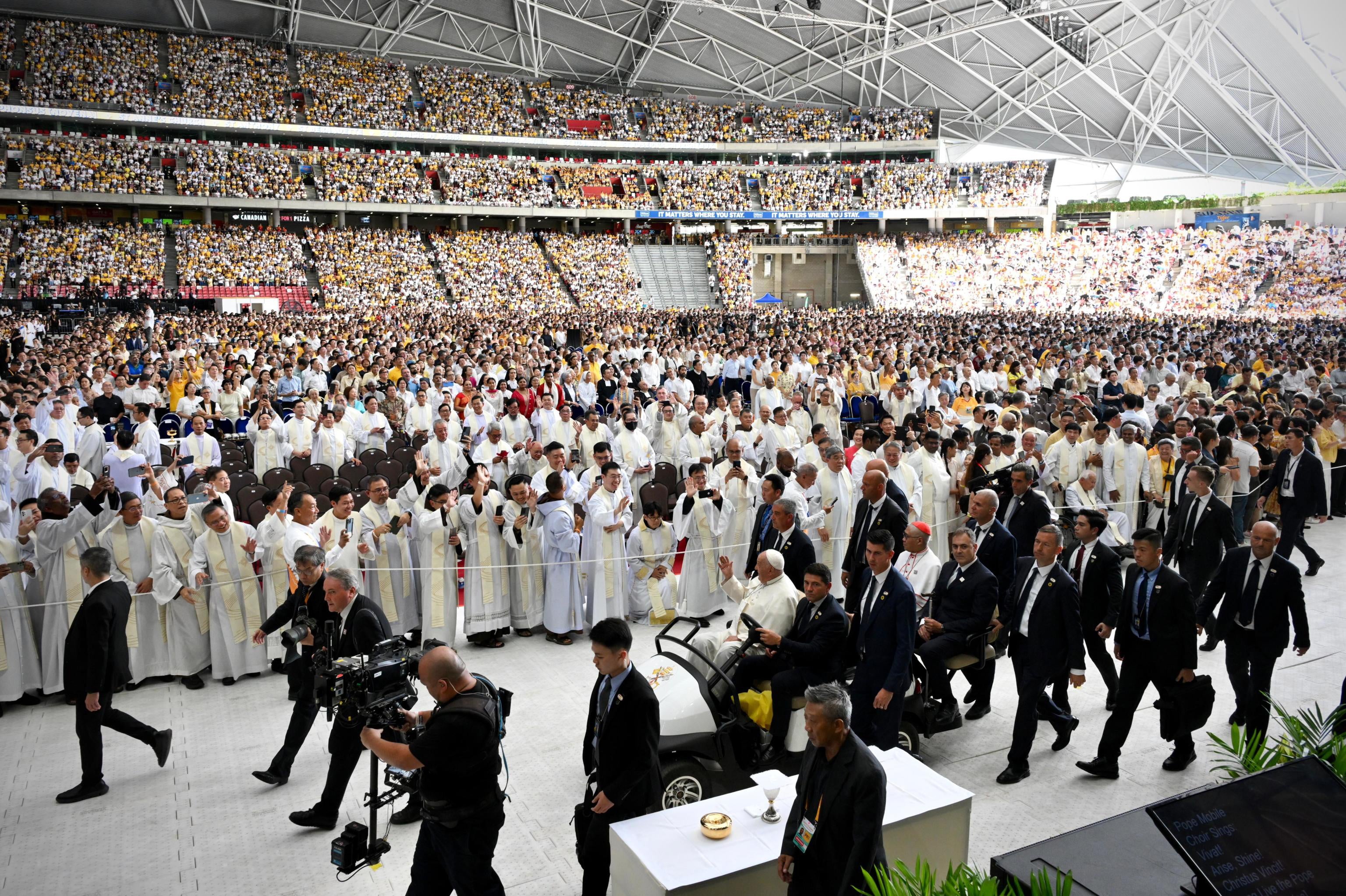
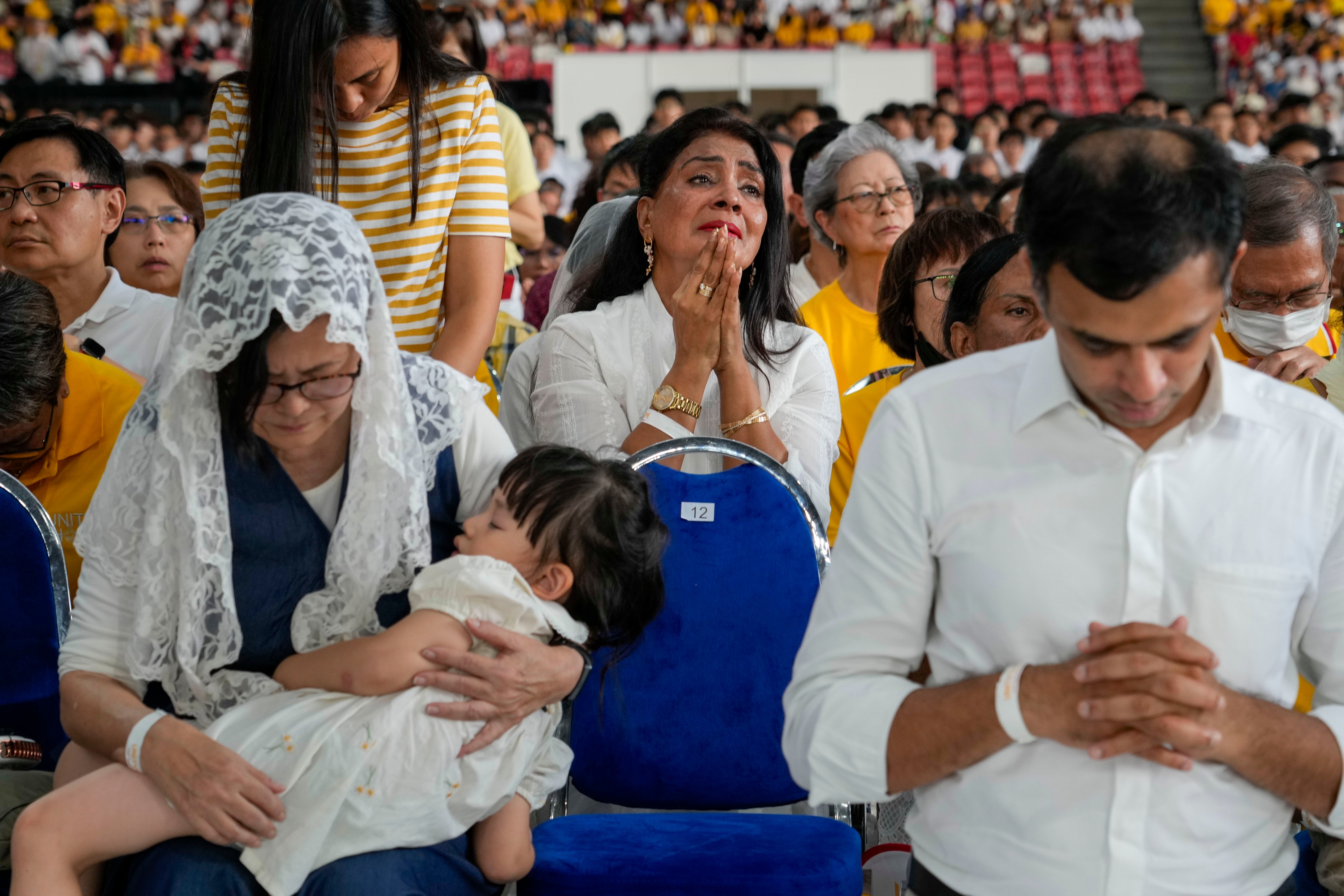
In a common appeal from the first Latin American pope ever, Francis called especially for dignified pay and conditions for migrant workers, who have helped build Singapore into one of the world’s advanced economic powerhouses.
“These workers contribute a great deal to society and should be guaranteed a fair wage,” Francis said.
Singapore has no minimum wage policy for locals or foreigners.
Singapore is the last stop of the pope’s 12-day tour which is the longest and farthest of his papacy after earlier stops in Indonesia, Papua New Guinea and East Timor.
The economic disparities were obvious upon arrival as Francis landed in Singapore’s high-tech airport aboard the lone aircraft belonging to Aero Dili, the national carrier of East Timor, where around 42 per cent of its people live below the poverty line.
Singapore has long been touted as a success story with its transformation from a colonial port lacking natural resources into a financial and trade power in just a few decades since its independence from Malaysia in 1965. The former British colony enjoys one of the highest living standards in the world, and is known for its safety and low crime rate. But it is also one of the most expensive cities to live in and its competitive work environment makes for a stressful, overworked people.
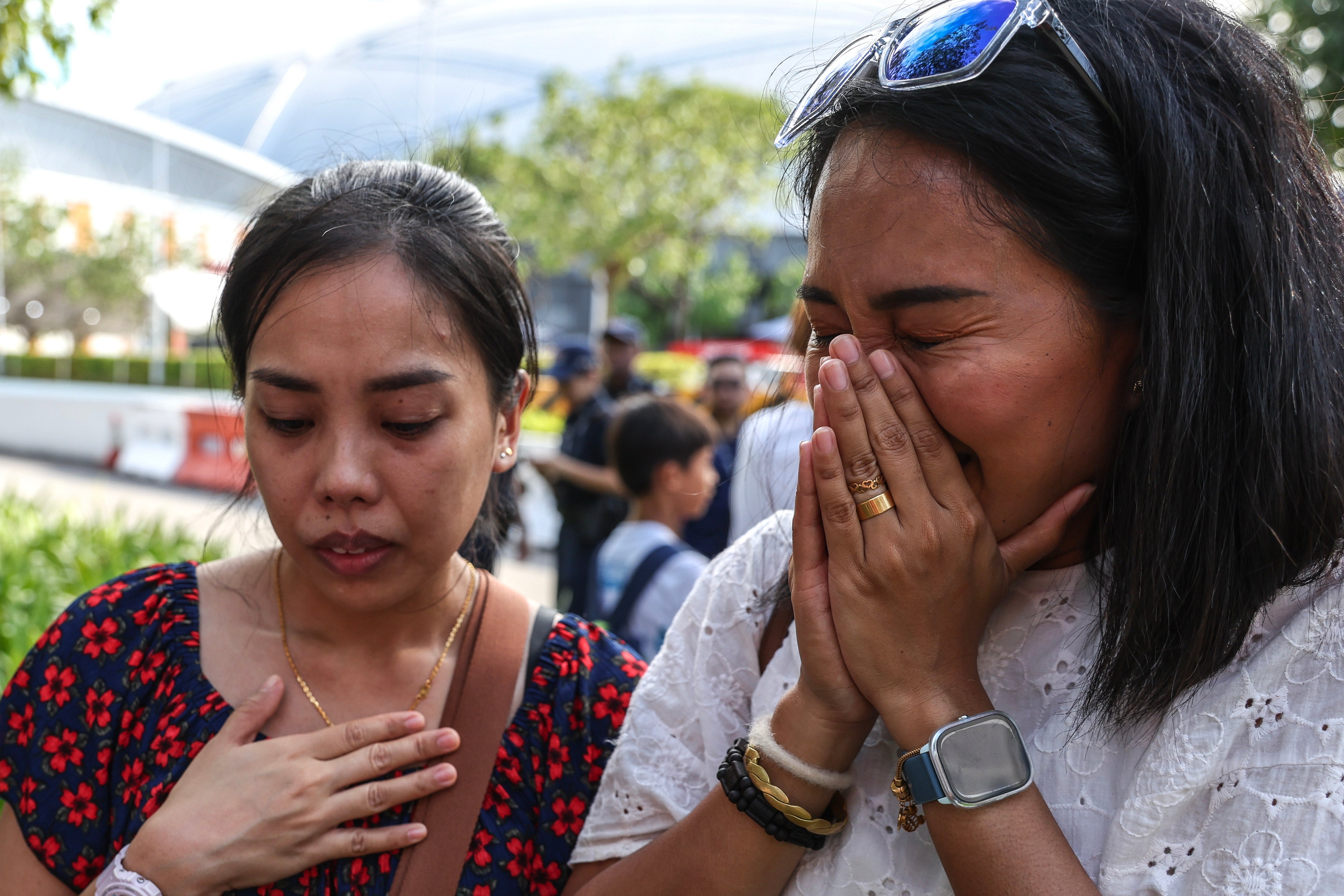
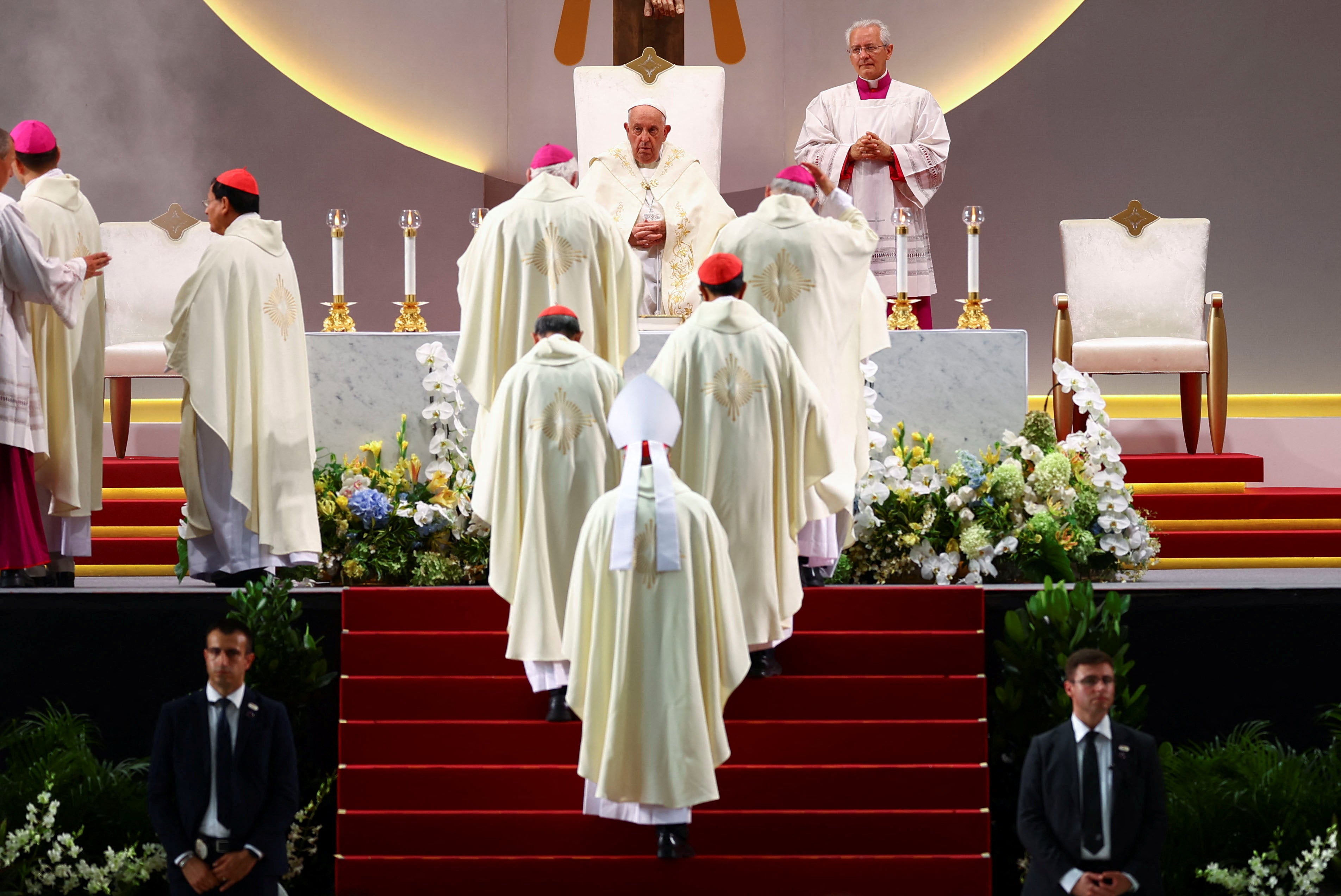
Foreigners account for over a third of Singapore’s workforce and more than 250,000 are migrant workers from Pakistan, Bangladesh and other poorer Asian countries.
Most work in construction, shipping and maintenance jobs, helping support Singapore’s trade-reliant economy.
Human Rights Watch noted in a report last year that foreign migrant workers in the city state face labor rights abuses and exploitation through exorbitant debts owed to recruitment agents, non-payment of wages, restrictions on movement, confiscation of passports, and sometimes physical and sexual violence. It said foreign domestic workers are excluded from many key labour protections, such as limits on daily work hours and sick leave and annual leave protections.
Francis is visiting Singapore to encourage its Catholics, who make up about 3.5 per cent of the population of just under 6 million, while highlighting Singapore’s tradition of interfaith coexistence. According to a 2020 census, Buddhists make up about 31 per cent of the population, Christians 19 per cent and Muslims 15 per cent, while about a fifth of the population claimed no religious belief whatsoever.
After the Mass, he will preside over an interfaith youth event Friday morning before returning to Rome.
